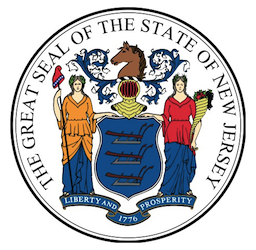Caesars Interactive Fined for Sending Promo E-mails to Self-Excluded Players
For the first time since intrastate online gambling became legal in New Jersey nearly one year ago, an online gaming operator has run afoul of the state’s regulations. As reported by the Press of Atlantic City, Caesars Interactive Entertainment has been fined $10,000 by the New Jersey Division of Gaming Enforcement (DGE) for e-mailing promotional materials to people who had added themselves to the self-exclusion list.
As part of New Jersey’s online gambling regulations, internet gambling and poker operators must allow players to self-exclude themselves from the site, banning themselves from playing. It is a way to prevent problem gambling. Of course, a player must be both aware of his problem and motivated to take action, but it is an avenue that has worked for many players on sites around the world.
Caesars operates WSOP.com in New Jersey and offers permanent self-exclusion or a temporary ban lasting one, two, three, or five months (why not four)? Players can initiate the action through the WSOP.com cashier or by calling or e-mailing a site representative.
WSOP.com describes the temporary exclusion period as so:
During the “cooling-off” period a player’s WSOP.com account will be suspended and WSOP.com will take all reasonable measures to make sure the player does not receive promotional offers. This suspension is irrevocable during the “cooling-off” period. The player’s WSOP.com account will automatically re-open at the end of the selected “cooling-off” period. A player may withdraw their remaining bankroll during this period.
If a player opts to permanently ban himself from WSOP.com, he will also be excluded from all Caesars brick and mortar properties, even the non-gambling areas of the venues. There is no way, according to WSOP.com, to reverse this status once it is in place. Those who just want to make sure they take a break from gambling should probably go for the temporary option.
While WSOP.com states that all “reasonable measures” will be taken to make sure players do not receive promotional offers, obviously something slipped through the cracks in this instance. This writer’s initial thought was that it was just a mistake, rather than something more nefarious and predatory, and it does appear that my instinct was correct. The Press of Atlantic City was able to get a statement from Caesars Interactive’s Vice President of Corporate Communications Seth Palansky, who said it was just an honest goof. 
“The issue that caused our system to inadvertently target these patrons has been fixed and we have had no incidents since,” Palansky told the Press. “We can assure the public that this lapse on our part was not an intentional targeting of these patrons, but simply a back-end software issue that failed to properly scrub our database before certain mailings.”
He added that his company self-reported the incident to the DGE and that it regrets “the harm this incident may have caused.”
The oversight occurred during a three and a half month period from February 16th to May 28th. During that time, more than 250 self-excluded players were sent promotional e-mails. The complaint against Caesars was filed on October 6th and signed by DGE Director David Rebuck four days later.
It is unfortunate that such an incident has occurred during a time in which online poker is being attacked politically and even more so now that this has come to light right when many of poker’s opponents are feeling empowered by the Republican dominance in the U.S. mid-term elections. Since Nevada first regulated online poker about a year and a half ago, we have been able to say that there has not been a record of a single problem, be it an underage person getting online, a problem gambler playing, or someone from outside a regulated state being able to register an account. Now we have an incident.
But before Sheldon Adelson and his cronies start pointing to this and saying, “See! We told you!” keep in mind that this is evidence that the regulations work. Caesars made a mistake, it realized it, it reported it to the proper authorities, and the authorities levied a punishment. Without regulations, sites might not feel the need to even have a self-exclusion list (many do, anyway) and they certainly would not report themselves to some non-existent or powerless organization. Caesars screwed up, admitted it, and took steps to remedy the situation.
Besides, as far as violations go, this, to me, is way down on the seriousness list. Problem gambling is not a trifling matter, but self-excluded people who received promotional e-mails are still self-excluded. It is not like they could magically log back into their accounts once they received the e-mails. Could viewing an e-mail possibly add to some temptation? Absolutely. But fortunately, those on the exclusion list are self-aware enough to be on the list in the first place and likely just deleted them.



















COMMENTS